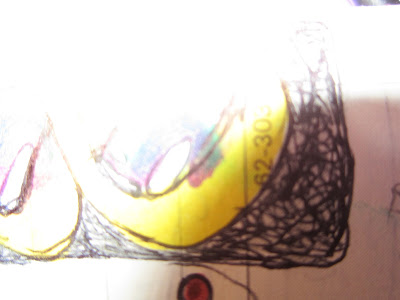AyinBase with R' Paltiel Sunday 12 Shvat 5772
Page 69 – 8 lines from the end of the page (line starts, 'rotze...')
See link (top right) for link to all pages of the text.
The principle distinction between inner and external (pnimius and chitzonius) is at the level of essential pleasure that is contained within Him. We are looking at the masha/metaphor that the Rebbe gives us to understand the difference between inner and external (pnimius and chitzonius) levels.
 One who has a wedding feast is in such a state of pleasure that he wants pleasure and satiation for all – even those distant from him. But his main will and pleasure is on his son, who is the groom at this feast. And then the members of his household. Still he wants also that even those distant from him should also delight. The joy comes from the essence which is limitless.
One who has a wedding feast is in such a state of pleasure that he wants pleasure and satiation for all – even those distant from him. But his main will and pleasure is on his son, who is the groom at this feast. And then the members of his household. Still he wants also that even those distant from him should also delight. The joy comes from the essence which is limitless. His inner circle touch him on the pnimius/inner levels and the other guests touch him at the level of chitzonius/external.
He wants also those who are distant from him to also delight in his joy.
The host wants his inner circle to not just 'enjoy themselves' but to experience his joy.
The inner circle is part of his own joy and the other guest are so that he does not feel the limit of his joy...
so we see the distinction between the inner/pnimius and chitzonius/external in the aspect of joy/pleasure, but this distinction is still concealed and not so obvious... all are invited and all are welcomed similarly and participate equally... The host relates to all. When does the distinction surface? Only later. The real intent will be expressed to those who are close to him.
 This is like the 8th day of Sukkot. This is Shmini Atzeret. After the feasting with the whole nation he invites his personal friend and says, 'let's rejoice, just the 2 of us', and it turns out that the whole event was for this later joy with his friend except earlier it was not known. It was not known externally.
This is like the 8th day of Sukkot. This is Shmini Atzeret. After the feasting with the whole nation he invites his personal friend and says, 'let's rejoice, just the 2 of us', and it turns out that the whole event was for this later joy with his friend except earlier it was not known. It was not known externally. If the host host has such great joy why the need for a feast? He has the joy, what's the feast doing? Let's say it is for the marriage of his son. It is so personal, so why include anyone else? Any simcha/joyous event is not really isolated to the father and son. If you live in a cocoon you don't have the whole thing. A simcha: – 'oz ve chedvah bimkomo' – joy in the place where He is present. It is not created by the human beings. Rather it is our pure connection to the G-dly truth...
This is where the ultimate reality is sensed. He is part of it and touched personally and in a state of excess joy. He feels his unity to something of great truth and reality – greater than himself – and hence he wants the whole world to rejoice with him!
There was a Rebbe (not Chabad) who lost a child. He was very aggravated. And one thing that aggravated him was that he felt the pain of that loss of his child more than he would have felt the loss of the child of someone else. For something to be real it has to go beyond the personal. Breathing is the breath coming into you – you don't struggle to take it – this is oneg – the experience of the G-dly reality.
We say there is a big merit of going to a bris – we say Eliyahu the prophet attends too and hence we come away clean – 'a clear cucumber'. So it would seem to be the same if it is your son or that of another. But there is a difference. The Rebbe is the leader of all Israel, but yet he has Anash – the people who are cleaving to him... So there are distinct paths. There is an overall reality and there are distinct channels.
When the joy is deep it goes to the source and includes everyone. But it includes them on an secondary level, since there is a primary level that is the specific dynasty or inner circle. After the main event the essence remains. The expression has occurred and now the essence is manifest.
In the human there are 2 element – the self and how he is part of the bigger picture. And these two are inseparable. The self is bigger than the self. The self is a G-dly gift, and there is a G-dly intent here. A man gets married because he realizes he is bigger than himself.
Chochmah is developed by binah. Chochmah is a point. Binah creates a structure and a context. You can almost get lost in the details, but then there is the nekudah hatamsis – this is after you have the whole exposition you go back and connect it back to one point. That is why after the whole wedding celebration there is a powerful moment of essence – the 'what was it all about'.
The universal is the expression of the essential.


No comments:
Post a Comment